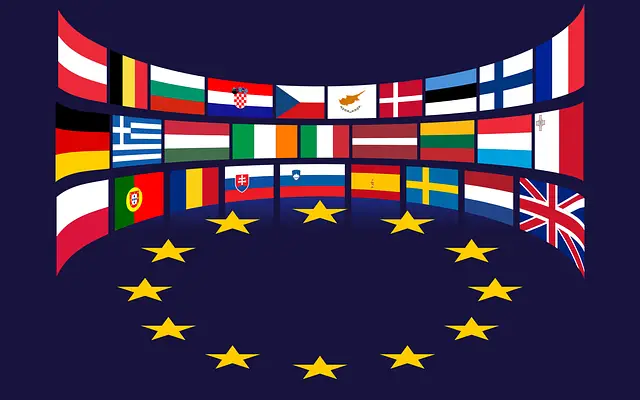Have you ever heard about tax havens? You most likely have. Lately, there’s been several scandals, which has to do with the wealthy and their unpleasant way of attempting to hide their money from the government. So, where do they hide that money? Tax havens.
Since their commencement, tax havens have been a common approach for the rich to escape paying taxes. The matter is usually portrayed as a just one. However, there’s a little more to it beyond that. This habit essentially takes money from the government’s treasuries, which could use it for other, more significant things. Therefore, let’s look at where the hidden wealth of nations truly is, and what can be done to reveal it.

Chapter 1 – After World War 1, the first tax havens emerged, and their numbers increased as time went on.
As you can see, world wars are costly. Also, after World War I, a lot of European countries increased income taxes in order to rebuild societies and help veterans.
A severe illustration is post-war France. In 1924, France’s former top-tier income tax (2%) had been increased to an overwhelming 72%.
Related tax increases were appearing across the continent, and, due to that, rich Europeans came up with approaches for evading these taxes – most frequently, by transferring their money to other nations.
The most apparent tax haven was Switzerland. A neutral state during World War I, Switzerland was unharmed by the fight and had no cause to increase taxes; also, it had a properly established banking network with high-interest rates.
In 1938, Swiss banks kept ten times more foreign riches than in 1920. During that time, this money contributed to 2.5% of the whole wealth of European households and would be equivalent to approximately $130 billion in the present-day value.
Afterward, during the early 1980s, tax havens started to increase.
When Margaret Thatcher became the Prime Minister of the United Kingdom, she liberalized Britain’s financial markets. This enables cities such as London and Hong Kong, and British territories such as the Virgin Islands, to contend with Switzerland in the private wealth-management market.

Before long, these policies extend to other European countries such as Ireland and Luxembourg, which offered people more choices to pick from.
In spite of the competition, Switzerland’s private banking sector keeps flourishing. In 2015, nearly $2.3 trillion is still being kept in Swiss banks, an 18% growth since 2009.
Extraordinarily, $1.3 trillion of that still emanates from rich Europeans, signifying an incredible 10% of the entire wealth of European people.
Now we understand how tax havens began. In the following chapter, we’ll explore how people redirect their money.
Chapter 2 – In tax havens, there was an approximated $7.6 trillion hidden there in 2014.
You may likely have heard of the financial crisis in Greece, which had accumulated $350 billion in public debt. That’s an alarming huge amount. Even more alarming, however, as a matter of fact, in the year 2014, $7.6 trillion of the world’s money was being hidden in tax havens. Meaning, 8% of our world’s wealth was hidden away.
Believed hidden, we can, however, monitor this money through recorded liabilities and assets
What is the meaning of that? Well, let’s explore how a French investor purchases stocks in a German business such as BMW.
The sale of BMW stocks to a foreign investor would be recorded by German accountants as a liability, which basically entails that BMW is responsible to pay to the French investor.
Conversely, this sale would be recorded as an asset in France, since BMW’s payments would go into the French economy and be taxed.
However, this is the problem: If the French investor puts in these stocks into a Swiss bank account they will neither be recorded as an asset nor will it be taxed by France.

This forms a worldwide imbalance: liabilities would be greater than assets. Certainly, in 2014, this inconsistency got a huge $6.1 trillion. If we add this with the $1.5 trillion in unidentified bank deposits, we get to $7.6 trillion being hidden away for the main aim of evading tax.
This is a conservative approximation. It doesn’t contain high-value, non-financial things such as yachts, jewelry, or real estate acquired in tax-exempt locations.
Certainly, it’s not possible to know how the value of these non-financial things. However, even if it was possible, it’s not likely that the $7.6 trillion amount would greatly increase.
Nevertheless, people who stay rich hardly invest their money in items such as mansions or yachts. It’s really likely they make clever and secure investments, like buying stock in a trustworthy company such as BMW.
Maybe this seems harmless enough; however, in the following chapter, we’ll look at how much destruction it can lead to.
Chapter 3 – Tax havens have a harmful effect on people and governments.
If you’re thinking of how these tax havens impact the globe, consider Greece’s $350 billion debt and think of the fact that 4.5% of the country’s wealth was being put away in foreign banks.
In 2014, it is approximated that, tax havens cost global economies an approximated $200 billion in revenue. Although that amount signifies about 1% of the world’s whole government revenue, these losses still have huge impacts.
Let’s explore how tax havens can allow a bad economic condition to even become worse in Europe.
Ever since the financial crisis started in 2008, economic growth has greatly reduced, causing increasing debt. Only in 2014, money hidden away in tax havens removed $78 billion in tax revenue for European nations.
This type of huge-scale tax fraud has an extreme effect on European economies; governments eventually making extreme budget reductions that comprise defunding helpful programs for middle and working-class families, which enables it to be more difficult for these people to spend and put back money into the economy, which just contributes to the issue of reducing growth and increasing debt.

Meanwhile, the rich continue becoming richer and keep putting 10% of their incomes away in Swiss bank accounts.
In 2014 for example, European personal riches in Switzerland got to $1.3 trillion, a 20% increase since the financial crisis started– a massive amount of lost revenue that could have been utilized to hinder the budget reductions that harm Europeans working and middle-class.
For instance, in France, the last few years witnessed an approximated loss of $300 billion in tax revenues as a result of tax havens. This money could have increased the present GDP by 15%, a huge amount.
The funds could have utilized to settle public debt, reduce tax rates and assist growth, eventually decreasing the differences between rich and poor.
We’ll look at what can be done to hinder tax havens and destroy economic disparity in the following chapter
Chapter 4 – The majority of the laws against tax havens have been abortive; however, there is hope for the future.
We’ve looked at the harms that can be caused by tax havens. Therefore, what can be done about it? Quite a number of measures have emerged; but, unfortunately, the majority has been unsuccessful at best and total failures at worst.
Basically, most efforts at fighting tax havens are basically not really strong.
There have been noble attempts. In 2009, during a G20 meeting, the representatives of the 20 key economies assembled to declare they had reached an agreement on fighting tax havens. Nicolas Sarkozy French Prime Minister even stated it as the “end of tax havens.”
It was a good notion in theory: countries would be permitted to request that banks in foreign nations show financial information about their citizens.
However, in practice, it was a tragedy: to get this detail, governments first had to give proof to these tax havens that tax fraud was being done. It’s a difficult situation. Even if tax avoidance is suspected, it is very hard to give proof without getting the demanded detail. So, tax havens hardly have to give any detail whatsoever.
The failure of the G20 strategy is clearly painful; since 2009, the number of personal riches kept in tax havens has increased by 25%.

This is probably as a result that the same politicians who are apparently against tax havens are really part of the avoidance. French Minister of the Budget Jérôme Cahuzac, who was leading the battle against tax avoidance in France, resigned after his personal offshore bank account in Singapore was exposed.
Luckily, there are more recent actions that display more assurance.
Lately, the United States has enacted the Foreign Account Tax Compliance Act (FATCA), which offers an automatic exchange of financial detail between international banks and US tax authorities. Also, it imposes economic sanctions on any foreign banks that hold back details from US authorities.
However, while some nations have made progress on this, there is still much work to be done.
Chapter 5 – In order to get rid of the world of tax havens, we have to enact effective and forceful solutions.
Therefore, where does the battle against tax havens go from here? Can countries learn from former errors and take hints from strategies that show assurance?
The author proposes two strategies.
Firstly, there has to be a worldwide FATCA –meaning, the entire countries continuing to act as tax havens should go through economic sanctions and trade levies.
Clearly, this is a huge order, needing complete cooperation between various countries, particularly those in Europe and the G20. However, it entails that any foreign bank or country that doesn’t comply with tax-fraud investigations would face financial consequences.
Also, even if those countries were able to evade the consequences, they would still be faced with trade tariffs on commercial goods and services they depend on.
This approach of trade tariffs emphasizes the significance of a really international and cooperative tactic.
For instance, assuming that France imposes tariffs on Switzerland for not giving out information. Instead of agreeing to cooperate, Switzerland might take more offense and choose to close its borders to French tourists. But, if the whole of Europe supports France against Switzerland, the government would be very likely to cooperate instead of strike back.

The second thing would be to guarantee tax haven compliance. This would entail making an international wealth database that has a full account of international ownership of every stock and bond, which would be easier for international tax authorities to confirm when banks are being truthful and when they’re hiding information about their customers.
In addition, this type of database would also give countries better strategies in the battle against money laundering and the financial actions of terrorist organizations.
Chapter 6 – To really fight tax evasion; we need to also check the operations of multinational corporations.
Although the initiatives mentioned in the former chapter would be huge victories in the fight against personal tax avoidance, hindering businesses from hiding their money is another issue. Why is it really difficult to put an end to corporate tax avoidance? Well, usually, it’s perfectly legal.
In fact, multinational corporations have a number of methods to evade paying taxes.
The actual nature of being a multinational corporation entails that profits are received across the globe and the corporations can transfer this money to wherever they wish, as well as tax havens.
The majority of the issue has to do with how corporations deal with transfer prices, meaning, how much it costs a branch to purchase products from another branch within the exact multinational corporation.
For instance, if Google or Microsoft wishes to evade the huge corporate tax rate in France, they’ll develop a branch sited in a tax haven such as Ireland to sell them services at a good cost. That way, the revenues of the sale stay in Ireland, and they don’t need to pay high taxes.
Those kinds of corporate tax-avoidance approaches result in costing the US government $130 billion every year in revenue, which is the reason we should totally rethink how we tax corporations in this present globalized world.
Once more, we’ve noticed G20 countries get together in efforts to tighten regulations on transfer prices; however, this has taken us nowhere, as corporations are frequently at least two steps ahead. Rather, we have to think big and device means to enact global taxes on global profits.

One method this could be effective is to reason proportionately.
For instance, take a huge multinational corporation such as Apple: If 50% of its products are sold in the United States, so the United States should tax 50% of its revenues.
This would make it really hard for multinational corporations to avoid their taxes. Apple would need to look for an approach to sell iPhones to all American customers from its branch in Ireland!
The Hidden Wealth of Nations: The Scourge of Tax Havens by Gabriel Zucman, Thomas Piketty Book Review
Averagely, tax avoidance costs global governments an approximated $200 billion yearly. Roughly $7.6 trillion is being kept in offshore tax havens, contributing to 8% of worldwide household wealth. These practices damage society and contribute to increasing economic inequality. Up to now, measures to put a stop to tax havens have failed; however, countries could join forces and make effective and forceful actions and put a stop to the scourge of tax havens.
